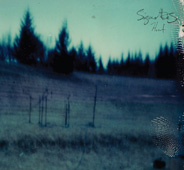Anger: Old Men and Ents

The wrath of man worketh not the righteousness of God.
-James 1:20
I've heard more than a few preachers speak on getting "good and mad." That is, having a meek anger that responds in the way God would respond - an anger that drives the will to heal injustice and feed hunger, to stand for the broken and weep with the hurt. It is an anger to which I aspire, but that I cannot claim to have felt much. Most of my anger is of the destructive kind which serves a sovereign Me. Mine. Like the mindless gulls in Finding Nemo.
Reading a lovely, shattering, and refreshing entry today about Andrew Peterson's visit to Kentucky author Wendell Berry (read it yourself HERE), I was given, in the quieter moments of this evening, to thinking about old men and their anger. In my family tree, seeing an old man angry is a rare thing. Once, when I was younger, my mother's father took me to the driving range and attempted to show me the proper interlocking grip. I took my stance as he stood behind me and leaned over my shoulder. With all the enthusiasm my spindly boyish arms could muster, I reared back and thwocked at the ball, which nimbly skipped across the ground and to the right. Then I turned around to find that I had also thwocked my grandfather soundly upon the head. He hadn't made a sound, but held his bleeding ear with a pained look and calmly stated that it was time to go home.
This is one story among many. Not that I routinely golf after kith and kin, of course.
Compare this with my generation specifically. I drive the manic highway to and from work, regularly glimpsing those denunciatory bumper stickers proclaiming "Tolerance" or that we should "Coexist." Much do I doubt that any orthodox Wiccan would prefer association with Jesus of Nazareth who called himself God, With God, the Son of God. More to the point though, people between the ages of 15 and 30 are some of the angriest I know. We march about like magnesium flares, soon to snuff out with little to show. Most of the anger I see in young people finds its outlet in badges and bracelets and more indignance. Truly, injustice ought to horrify us, but to neither campaign button nor argument. It should horrify us to action. But, like fireworks and glowsticks, we burn dazzlingly and briefly, never giving any heat.
Old men, however, are perhaps more like Ents. They are much slower to anger and do not get excited for much. After all, "it takes a long time to say anything in Old Entish, and we never say anything unless it is worth taking a long time to say." Perhaps it is that they cannot afford to be angry over much. An old man may be crotchety or stubborn, but not often wroth. Perhaps it is ulcers or high blood pressure. Perhaps they know better than I that time is short. But an old man who is a deep well of the Love of God will rarely be stirred to anger, and beware when he is. The anger of the Lord is the anger of Love, and it will thrust mountains aside and silence the bleating of oceans in its fury. Like Treebeard and his cohorts, it may be a man's last march, but it will accomplish much and will bear justice in its train.










